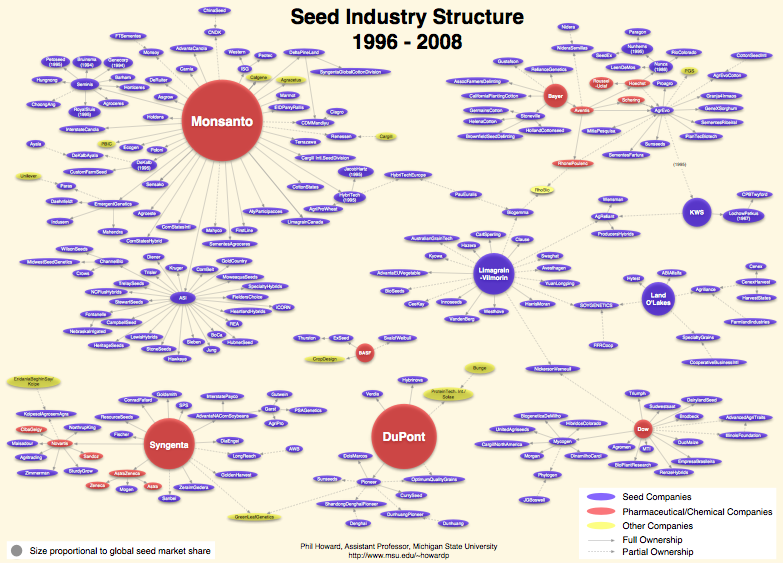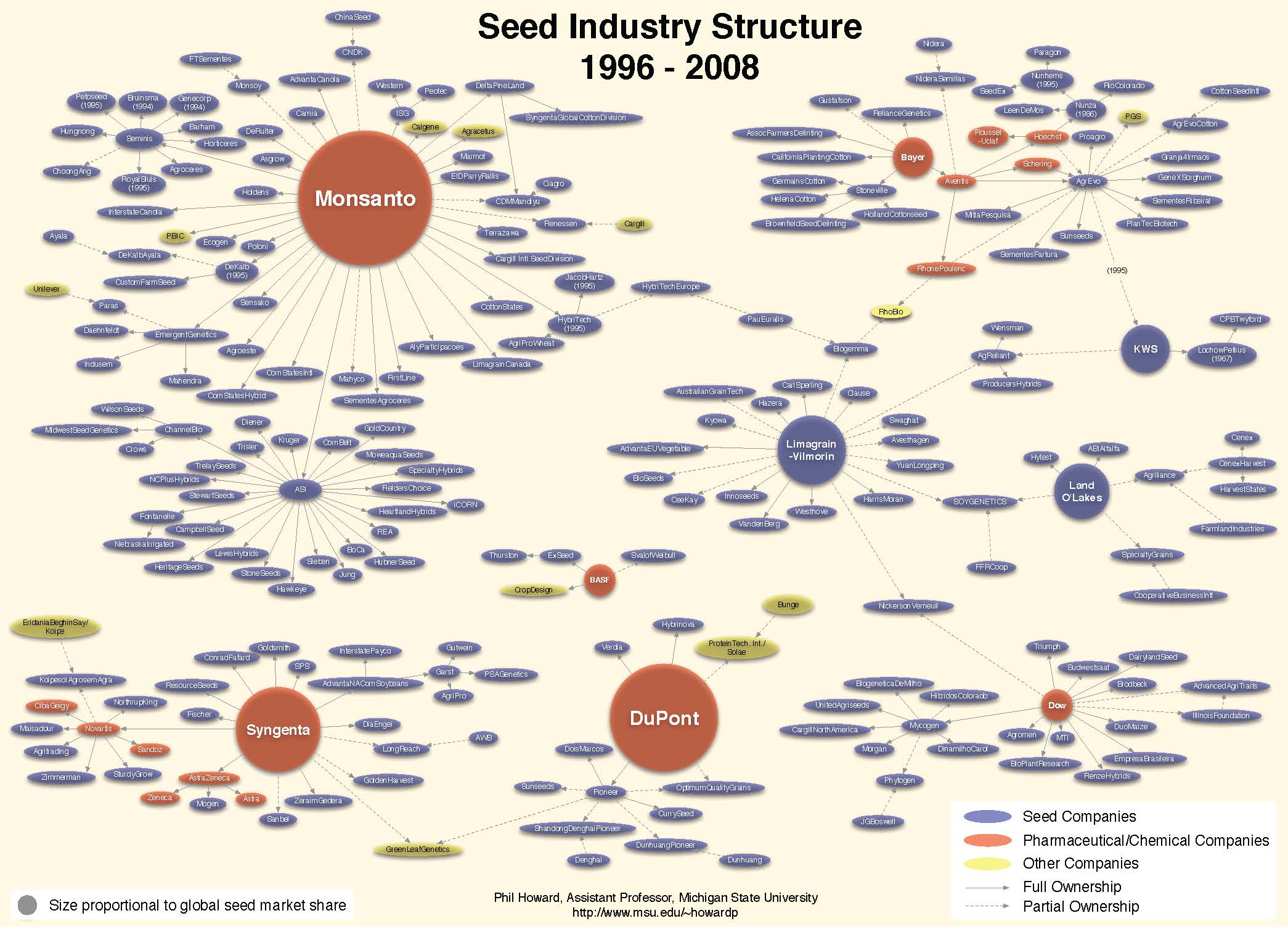Who needs “Better living with chemistry” when you have “Better breeding with Monsanto?”
If you thought that planting your own garden and growing and harvesting your own crops would keep you safe from the long arm of Monsanto, think again!
The agribusiness giant already has quietly stepped into the marketplace with commercial and consumer vegetable seeds, says the LA Times in Monsanto sprouting a produce-seed line.
Monsanto moved into the vegetable seed business in 2005 when it acquired Seminis Inc., Oxnard CA. Since then, it has bought four other vegetable seed companies and staffed 57 research centers around the world with seed geneticists and agricultural researchers.
Revenue from Monsanto’s vegetable seed business totaled $895 million for the company’s fiscal year that ended Aug. 31. That’s about 8% of its annual revenue, a figure the company hopes to grow steadily in coming years.
That long arm reaches even further; the company also breeds and sells organic seed.
Sue McGann, coordinator at Marra Farm in Seattle, turned down a donation of organic vegetable seed when she learned it came from one of Monsanto’s subsidiaries. Martha Baskin, Green Acre Radio, visits the farm and explores the issue with Sue, listen here:
Martha Baskin and Sue McGann discuss Monsanto’s reach.
What is your alternative? Save your own seed, share seed with your neighbors, or explore local and regional heirloom seed banks. Know the source of your seed stock!
Here is what the seed industry looked like in 2008. (Click on the image for a larger version.)



I just did a paper on this subject and would like to applaud your efforts. The flip side is that the companies are poisoning us to up the medication usage in the world. Then when the drugs we take finish us off they can consider that they are helping the environment by reducing the population of the earth. It is one twisted world we live in. The most important part of our effort is to inform each other. I also want to caution readers about Obama. He plays the part of environmentalist pretty well. He is just another greedy killer like all the rest. We need to let these bought whores know that we will not pay for their agenda. I have seen more Chem-trails with Obama in office that ever in my life. I also reap the health of Masonite plums wafting into the air and now live with several health issues. The big government does not care about us. We are at a point where we need to abolish our current system and start over, or they will wipe us clean off the earth with their greed. I would like contact to my e- mail please. My husband and I are making a sustained homestead in Arizona and I would like to start a seed exchange in my area. We live in the high desert and have a difficult time finding seeds that will grow here.I have used seeds of change with less that 2% producing. I would appreciate any information.Deb.
Deb,
You might reach out to Native Seeds/SEARCH (http://www.nativeseeds.org/), they look like they could help you with regional native and heirloom seeds.
Check out Gary Nabhan’s Facebook page – he might be someone to talk to as well.
Good luck with your homestead!
Gail N-K
“Know the source of your seed stock!” Monsanto has spent billions of dollars to secure its place at the top of the seed industry, a critical position due to the fact that it is the first link in the food chain. The company expects seeds and licensed traits will provide 85% of gross profits by 2012. Genetically modified crops represent one of the most significant threats to life on this planet. Transnational concentration in market share and power inevitably means a diminishing of crop biodiversity, in many cases for all time, as seed varieties are lost in the shuffle. It is our duty, even as community gardeners, to learn how to save seed and to do so. We thus represent the front line primary defense against crop variety loss, famine and pestilence for future generations! That is the bottom line.